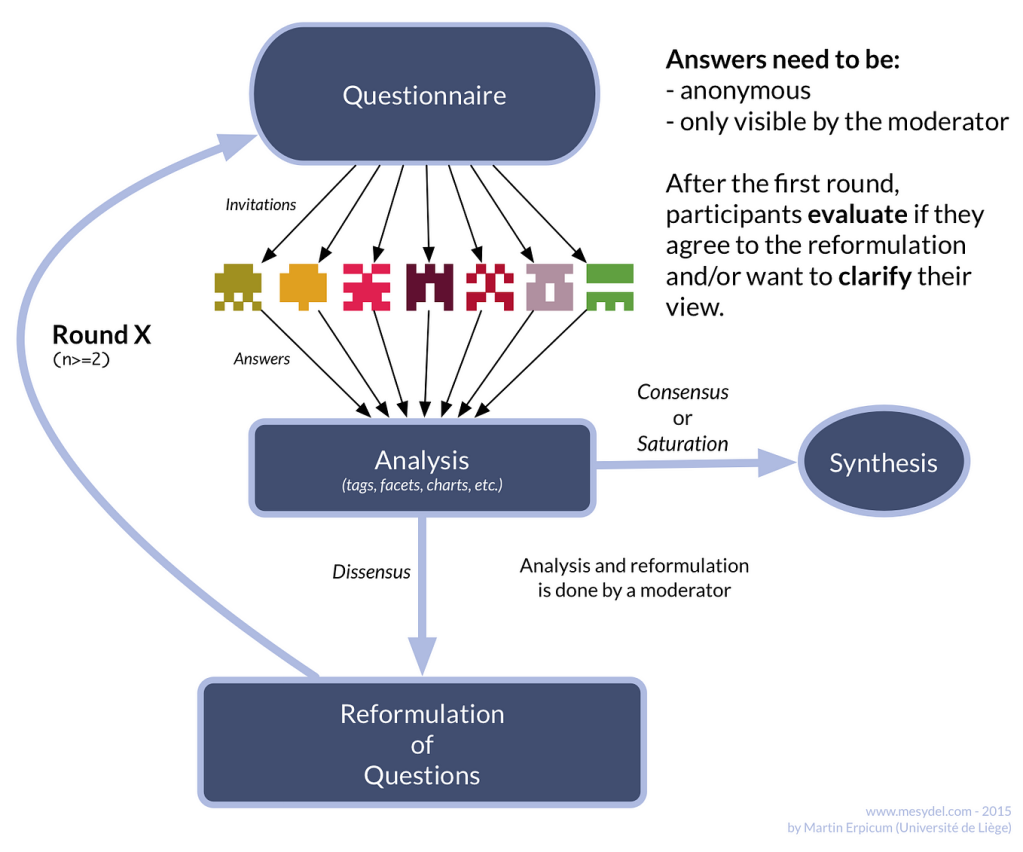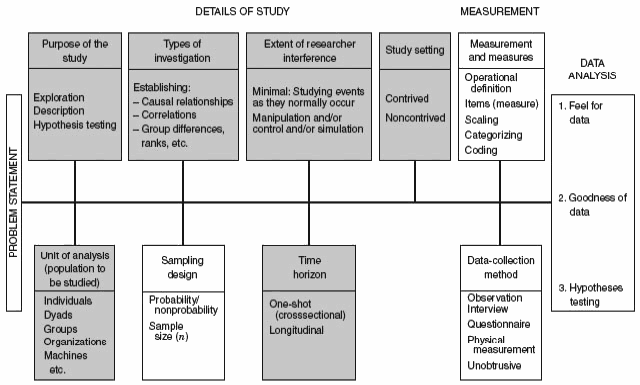By Shashikant Nishant Sharma

Delphi research is a methodical and structured communication technique, originally developed as a systematic, interactive forecasting method which relies on a panel of experts. The Delphi method is widely used in various research fields including health, education, and social sciences, aiming to achieve convergence of opinion on a specific real-world issue. The essence of the method lies in a series of rounds of questionnaires sent to a panel of selected experts. Responses are collected and aggregated after each round, and anonymized results are shared with the panel until consensus is reached, or the returns diminish marginally.

Step-by-Step Guide to Conducting Delphi Research
Step 1: Define the Problem and Research Questions
The first step in Delphi research is to clearly define the problem and establish specific research questions that need answering. This involves identifying the key issues at hand and formulating questions that are specific, measurable, and suitable for expert interrogation. It is crucial that the problem is framed in a way that harnesses the experts’ knowledge effectively.
Step 2: Choose a Facilitator
A neutral facilitator, often a researcher, is responsible for designing the study, choosing participants, distributing questionnaires, and synthesizing the responses. The facilitator must possess good communication skills and be capable of summarizing information in an unbiased manner.
Step 3: Select the Panel of Experts
The quality of the Delphi study heavily depends on the panel selected. Experts should be chosen based on their knowledge, experience, and expertise related to the topic. The panel size can vary but typically ranges from 10 to 50 members. Diversity in panel composition can enrich the results, bringing in multiple perspectives.
Step 4: Develop and Send the First Round Questionnaire
The initial questionnaire should gather basic information on the issue and understand the perspectives of the experts. Open-ended questions are useful at this stage to capture a wide range of ideas and insights. The questionnaire should be clear and concise to avoid misinterpretation.
Step 5: Analyze Responses
After the first round, responses are collected and analyzed. The facilitator plays a key role in summarizing these responses, identifying areas of agreement and divergence. This summary is crucial as it forms the basis for subsequent rounds.
Step 6: Iterative Rounds
Based on the summary of the first round, subsequent questionnaires are crafted to delve deeper into the topic, focusing on areas where consensus was not achieved. These rounds are more structured and often use scaled questions to measure the level of agreement or the ranking of priorities. The process is repeated, with each round refining and narrowing down the scope of inquiry based on the latest set of responses.
Step 7: Reach Consensus
The Delphi process continues until a consensus is reached or when additional rounds no longer provide significant changes in responses. It’s important to define what constitutes a “consensus” in the context of the study, which can be a certain percentage agreement among the experts.
Step 8: Report the Findings
The final step involves compiling the findings into a comprehensive report that outlines the consensus achieved, differences in opinions, the methodology used, and the implications of the findings. The report should be clear and detailed to allow for further academic scrutiny or practical application.
Tips for Effective Delphi Research

- Preparation is Key: Spend adequate time designing the study and formulating the questionnaire.
- Maintain Anonymity: Anonymity helps prevent the dominance of certain opinions and reduces the bandwagon effect.
- Feedback: Regular and clear feedback between rounds helps inform the experts of the group’s progress and encourages thoughtful responses.
- Patience and Persistence: Delphi studies can be time-consuming, and maintaining engagement from all participants throughout the rounds can be challenging but is crucial for the richness of the data.
Conclusion
Delphi research is a powerful tool for harnessing expert opinion and fostering a deep understanding of complex issues. By following a structured and systematic process, researchers can effectively manage the complexities of group communications and make informed predictions or decisions in their fields of study.
References
Balasubramanian, R., & Agarwal, D. (2012). Delphi technique–a review. International Journal of Public Health Dentistry, 3(2), 16-26.
Dehalwar, K., & Sharma, S. N. (2023). Fundamentals of Research Writing and Uses of Research Methodologies. Edupedia Publications Pvt Ltd.
Green, R. A. (2014). The Delphi technique in educational research. Sage Open, 4(2), 2158244014529773.
Hasson, F., Keeney, S., & McKenna, H. (2000). Research guidelines for the Delphi survey technique. Journal of advanced nursing, 32(4), 1008-1015.
Hasson, F., & Keeney, S. (2011). Enhancing rigour in the Delphi technique research. Technological forecasting and social change, 78(9), 1695-1704.
Keeney, S., Hasson, F., & McKenna, H. P. (2001). A critical review of the Delphi technique as a research methodology for nursing. International journal of nursing studies, 38(2), 195-200.
Ogbeifun, E., Agwa-Ejon, J., Mbohwa, C., & Pretorius, J. H. (2016). The Delphi technique: A credible research methodology.
Williams, P. L., & Webb, C. (1994). The Delphi technique: a methodological discussion. Journal of advanced nursing, 19(1), 180-186.




You must be logged in to post a comment.